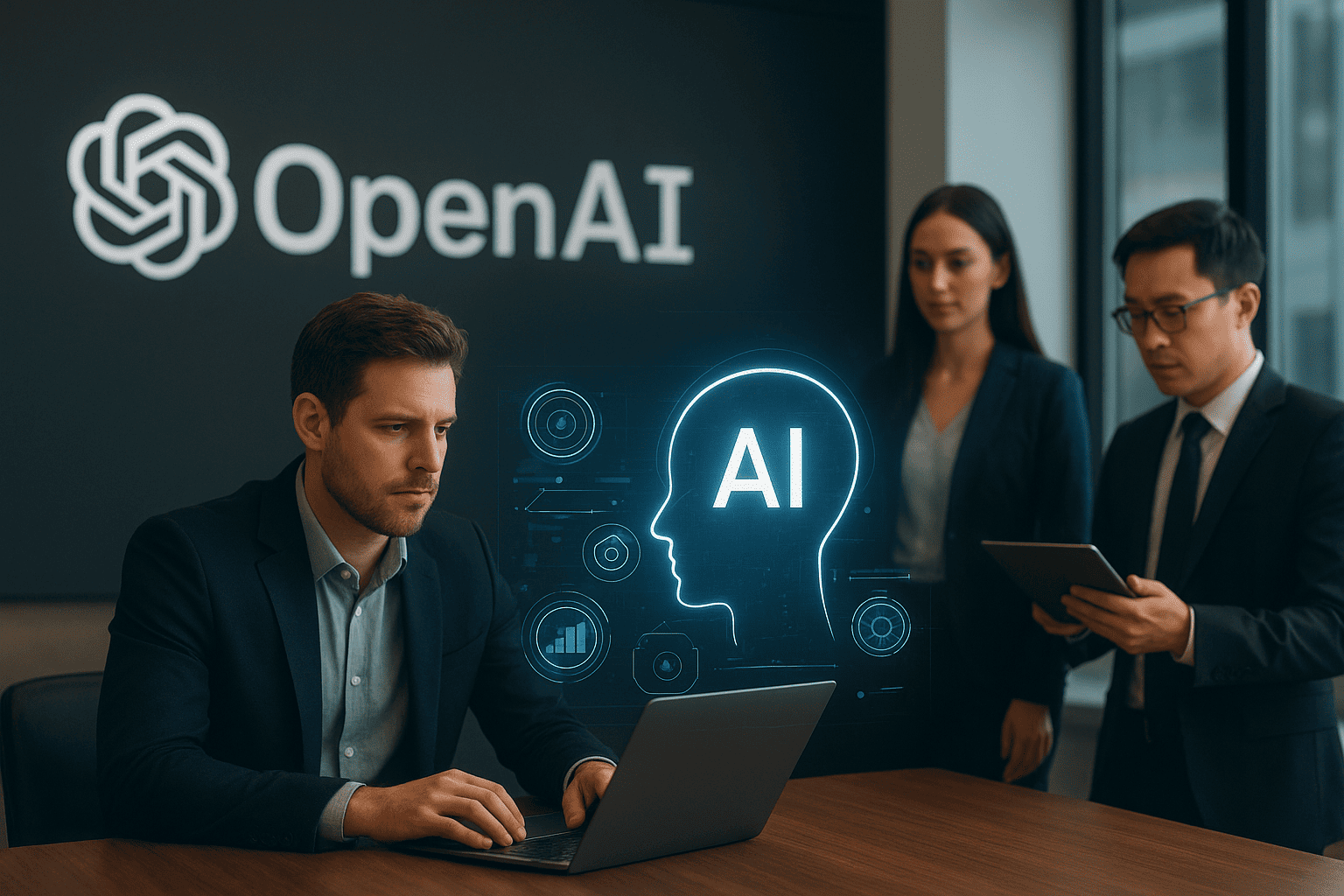OpenAI Hits 1 Million Business Customers — and It’s Just Getting Started

OpenAI just reached a milestone that underscores how deeply artificial intelligence has entered the modern workplace. The company revealed that more than one million businesses now use ChatGPT for tasks ranging from customer support and marketing to software development. It’s a number that not only highlights the platform’s explosive adoption but also positions OpenAI as one of the most influential players shaping how enterprises work in 2025.
This surge reflects a fundamental shift — AI is no longer experimental; it’s operational. Across industries, companies are finding tangible ROI in embedding ChatGPT into workflows, automating communication, and speeding up creative and technical processes.
Background & Context: From Curiosity to Corporate Cornerstone
When ChatGPT launched in late 2022, it was primarily seen as a consumer curiosity — a conversational chatbot capable of generating text, code, or poetry on command. But in less than three years, it’s evolved into a business-critical platform.
The introduction of ChatGPT Enterprise and ChatGPT Teams allowed organizations to access GPT-4 capabilities with enterprise-grade security, admin controls, and data privacy assurances. This move directly addressed corporate concerns around compliance and confidentiality — paving the way for massive adoption across sectors including finance, healthcare, media, and education.
According to OpenAI’s internal reports, usage among mid-sized and large enterprises has tripled in the past six months alone. OpenAI now serves everyone from small startups to global giants, with users spanning over 100 countries.
Expert Voices: Why Businesses Are Buying In
“ChatGPT has gone from a tool to an infrastructure layer,” says Sarah Guo, founder of Conviction, a venture fund specializing in applied AI. “It’s not just generating content — it’s becoming part of the workflow for decision-making, analysis, and creativity.”
OpenAI COO Brad Lightcap emphasized that this growth isn’t just a numbers game: “What we’re seeing is transformation at scale. Businesses are integrating ChatGPT as a collaborator, not just a tool.”
Industry analysts agree. “The shift from curiosity to corporate standard mirrors how cloud computing took off a decade ago,” notes Patrick Moorhead, CEO of Moor Insights & Strategy. “Generative AI is the new layer of productivity infrastructure.”
Market & Industry Comparisons: The AI Arms Race Intensifies
OpenAI’s momentum arrives amid fierce competition. Microsoft, Google, Anthropic, and Meta are all racing to capture enterprise AI adoption. Microsoft’s deep partnership with OpenAI — including integration of GPT models across Office, Azure, and Copilot — gives it a strategic edge, but OpenAI’s direct business reach is rapidly expanding.
Meanwhile, Google is pushing Gemini for Workspace, and Anthropic is targeting businesses with Claude Pro. Yet, OpenAI’s broad usability and flexible ecosystem give it a key advantage: accessibility. ChatGPT’s familiar interface and versatile API mean businesses can start small — and scale quickly.
Implications: Why This Matters
This milestone represents more than user growth; it’s a shift in how businesses think about AI. Companies are no longer asking if they should adopt AI — but how fast.
For startups, ChatGPT reduces overhead by automating marketing, support, and analysis. For large corporations, it accelerates innovation cycles and internal communication. As AI literacy spreads, teams are moving from experimentation to full deployment — creating an entirely new class of AI-powered organizations.
Experts estimate that by 2026, over 60% of global businesses will have integrated generative AI tools into daily workflows. OpenAI’s early foothold positions it as a defining force in that evolution.
What’s Next: Beyond the Million-Mark Milestone
OpenAI shows no sign of slowing down. The company is reportedly developing advanced enterprise APIs, deeper analytics tools, and custom model training for businesses. CEO Sam Altman has hinted at “new forms of AI collaboration” — possibly blending text, image, and audio models into unified assistants.
As the competition heats up, OpenAI’s challenge will be maintaining reliability and trust at scale — especially as organizations demand higher transparency around data and model outputs. But for now, crossing one million business users cements its place as the global leader in applied generative AI.
Our Take:
This milestone signals a historic turning point — AI has officially become a core business utility. OpenAI’s success with ChatGPT shows that generative AI is no longer a niche innovation but the backbone of digital transformation. As work becomes more intelligent, collaborative, and automated, OpenAI stands at the center of an ecosystem reshaping how humans and machines co-create value.